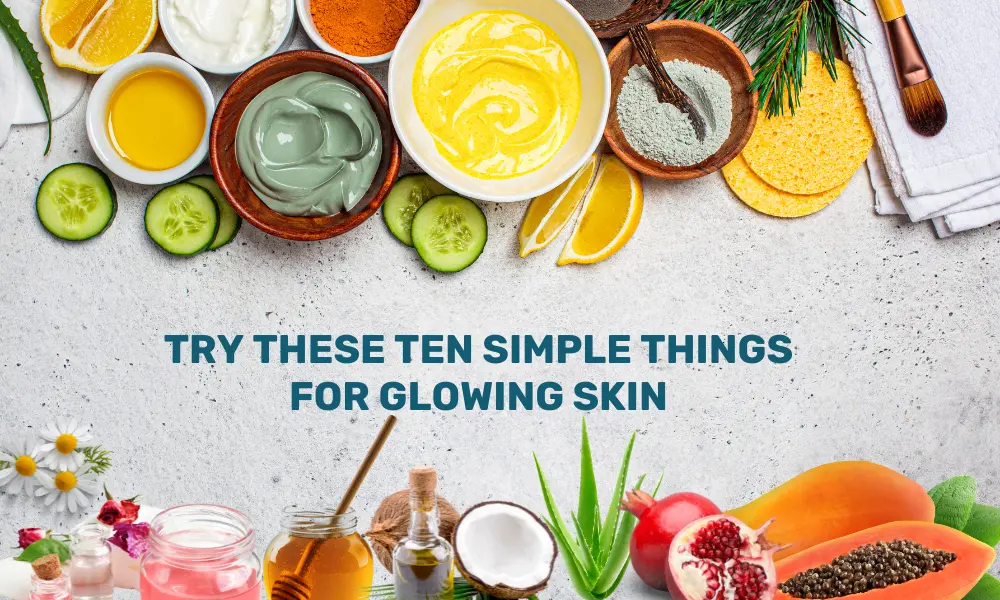Expensive creams and serums may not always necessarily provide radiant skin. Numerous natural components can nourish and brighten our skin, doing wonders for it. With so much pollution, our skin and its glow can be affected adversely. Below are a few ill effects of pollution on our skin:
-
Skin aging: Air pollution can lead to pigmentation issues, wrinkles, and other signs of premature aging.
-
Oxidative stress: Air pollution can lower antioxidant levels in the skin, leading to oxidative stress.
-
Skin disorders: Air pollution can contribute to the onset of skin disorders like acne, psoriasis, atopic dermatitis, and skin cancer.
-
Inflammation: Air pollution can activate inflammatory pathways in the skin, which can lead to inflammation.
-
Reduced vitamin D: Air pollution can reduce the amount of UVB energy that reaches the Earth, reducing the body’s production of vitamin D. Vitamin D deficiency can lead to skin disorders.
People with sensitive skin or inflammatory skin diseases like eczema are more likely to be affected by air pollution.
It is, therefore, important to to take care of our skin on a regular basis. However, skin care products may sometimes harm the skin rather than improve it. Therefore, one must rely on natural products that can help improve the skin’s glow.
Here are ten natural substances for healthy, glowing skin that you can use in your skincare routine.
1. Aloe Vera: A well-known natural substance that has good moisturizing and calming qualities is aloe vera. Packed with vitamins A, C, E, and B12, it aids skin cell renewal and repair, lowers inflammation, and preserves moisture.
2. Yogurt: Lactic acid, abundant in yogurt, hydrates, softly exfoliates, and lessens the look of fine wrinkles on the skin.
3. Chamomile: Chamomile is rich in anti-inflammatory and soothing qualities that can help calm irritated skin and reduce redness. It’s also rich in antioxidants.
4. Honey: Since honey is a naturally occurring humectant, it adds moisture to the skin. It has antioxidants that promote skin health and antimicrobial qualities that can help manage acne.
5. Coconut Oil: Coconut oil has fatty acids that nourish and moisturize the skin. It has antimicrobial properties that help prevent skin infections.
6. Rose Water: Rose water has anti-inflammatory properties that reduce redness and irritation. It also helps to hydrate and refresh the skin.
7. Papaya: Papaya is rich in an enzyme called papain, which acts as a natural exfoliator. It helps remove dead skin cells, unclog pores, and improve skin texture and tone.
8. Almond Oil: Vitamins E and K, abundant in almond oil, support skin hydration and nourishment. Additionally, it contains anti-inflammatory qualities that help calm sensitive skin.
9. Pomegranate: Pomegranate is packed with antioxidants and vitamins that help to protect the skin from environmental damage, promote cell regeneration, and improve skin texture.
10. Seaweed: Seaweed is rich in vitamins, minerals, and antioxidants. It helps to detoxify, hydrate, and rejuvenate the skin.
The Bottomline
Because natural components usually contain fewer harsh chemicals, preservatives, and synthetic additions, lowering the risk of irritation and allergic responses, they are frequently preferred over synthetic serums for shining skin.
Natural ingredients like vitamin C, aloe vera, and green tea, which are abundant in vital vitamins, minerals, and antioxidants, offer deep nourishment and shield the skin from free radical damage, thereby fostering healthy and glowing skin.
Particularly for sensitive skin, using natural substances guarantees improved absorption and balance, making them mild and efficient. Additionally, natural skincare products are frequently more eco-friendly, which helps create a sustainable beauty routine. To get an expert opinion about how to care for your skin – CLICK HERE.





